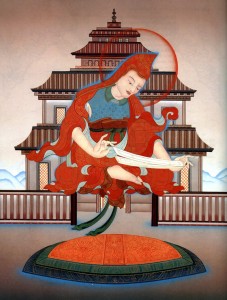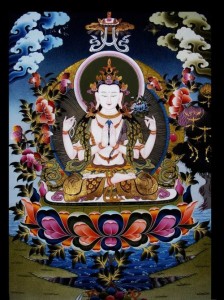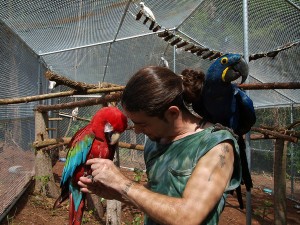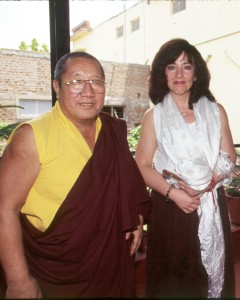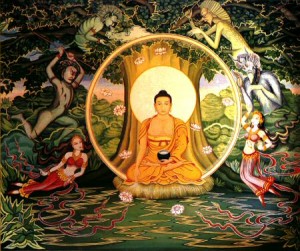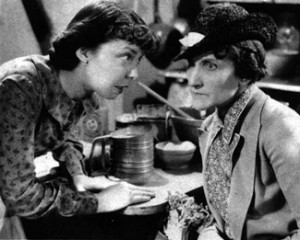A slideshow compiled by a student of dharma who was inspired by the compassion retreats of Jetsunma Ahkon Lhamo:
Compassion
Beginning Spiritual Training
The following is respectfully quoted from “Reborn in the West” by Vicki Mackenzie:
‘There was no one to put me in touch with Buddhism. Not at all. The only thing that could have connected me, but didn’t, was that my mother took me to Coney Island and a palm-reader there told me I was an old Tibetan. That was all. I had no idea about Tibet. Not a clue. When I thought about Tibetans I thought of smelly old men on rugs!’
When she ran away from home on the advice of the police she headed for Florida, where she met a man, and married him. She had a baby and they moved on to an isolated farm in North Carolina. That was when Jetsunma’s spiritual story began. Finally away from the hubbub of city life and the distress of her own family situation, the greatness that was lying within her began to evolve. Without any particular emotion or even interest in her voice, she explained the extraordinary series of events that followed.
‘I started to have a series of dreams–I’ve had odd dreams all my life. And in these dreams I would be told what to do. A succession of very strange things happened.
‘Most of these dreams told me to look for a sign. The first involved meeting a an old woman, she was like a witch in a turreted castle. This woman placed a circle on my forehead and said, “This is who you are, now you have to commence.” Three days later a friend of mine asked me to go with her to this woman who did astrological charts, which interestingly are drawn in a circle. We thought it would be a bit of a lark, and so we went. This woman opened the door and, as surely as I’m sitting here, she was exactly the same as the woman in my dream. She had the same face and was wearing the same clothes. I remember breaking out in a sweat!
‘She was really old, but somehow I was very attracted to her. I remember looking at her and thinking she was beautiful. Anyway, she said she wanted to do my chart. After a while she came back and said, ‘My dear, I have nothing to say to you. Your whole life is laid out, you don’t need any advice from anybody.’ I think she was very skillful because she didn’t crystalize anything–she let it stay fluid.
‘Three days later I had another dream which showed me the farm where I was living, but there were extra cars outside the porch. A thunderstorm blew in, and the sky was unusually green. Well, three days after this dream–it all seemed to be happening in three-day-periods–I’d gone out shopping and come home with some friends in their cars and the thunderstorm happened. In the dream the voice had said, “When you see this, it is time to begin your meditation.”‘
To say Jetsunma was taken aback would be an understatement. She was just nineteen years old at the time, and wondered why these things were happening to a poor ‘girl from Brooklyn’. Furthermore, she had no knowledge of or training in meditation.
‘I went out to the front porch and looked at the scene to make sure it was exactly like my dream. It was. Then I went back into my bedroom and lay down! I knew that if I prayed for guidance I would get to learn how to meditate, as the dream had instructed. That was the start of my real spiritual training.” she said. It was to be highly individual and quite unorthodox.
‘The first thing I was “told” was that I had to make a very deep commitment that everything I did from here on would be a channel for blessings. So I use to do this meditation where I would say things almost as if I were chanting a mantra: “I commit myself to benefitting all beings, my life has no meaning other than the benefit of all beings.” Unbeknown to her at the time, she was uttering stock Tibetan Buddhist concepts in stock Tibetan Buddhist jargon. Every day she diligently continued feeling her way along her meditations.
‘The picture I had was of being a faucet–the water was in there, and I just had to turn the faucet on, kind of thing. I tried to align myself with the principle of broad-spectrum compassion.”
The Benefits of the Awakening Mind
Here is another excerpt from the first chapter of A Guide to the Bodhisattva’s Way of Life called “The Benefits of the Awakening Mind.” May these words written by Shantideva inspire all who encounter them.
#26
How can I fathom the depths
Of the goodness of this jewel of the mind,
The panacea that relieves the world of pain
And is the source of all its joy?
#31
If whoever repays a kind deed
Is worthy of some praise,
Then what need to mention the Bodhisattvas
Who do good without it being asked of them?
#32
The world honors as virtuous
One who sometimes gives a little, plain food
Disrespectfully to a few beings,
Which satisfies them for only a half a day.
#33
What need be said then of one
Who eternally bestows the peerless bliss of the Sugatas
Upon limitless numbers of beings,
Thereby fulfilling all their hopes?
#34
The Buddha has said that whoever bears a harmful thought
Against a benefactor such as a Bodhisattva
Will remain in hell for as many aeons
As there were harmful thoughts.
#35
However, if a virtuous attitude should arise (in that regard),
Its fruits will multiply far more than that.
When Bodhisattvas greatly suffer they generate no negativity,
Instead their virtues naturally increase.
#36
I bow down to the body of those
In whom the sacred precious mind is born.
I seek refuge in that source of joy
Who brings happiness even to those who bring harm.
Abandoning Love: The Fourth Root Downfall
The following is respectfully quoted from “Perfect Conduct” with commentary by Dudjom Rinpoche:
4.b.3(b.4) Abandoning love:
The fourth is wishing that any sentient being should be separated from happiness and losing heartfelt love for them.
To wish any sentient being should be separated from happiness and to stop feeling heartfelt love for them is the fourth root downfall. The object can be one sentient being or many. To wish for them to be separated from happiness and to meet with suffering or misfortune, thus forsaking them and giving up any love for them at all, constitutes this downfall.
A Great Opportunity
The following is an excerpt from a teaching by Jetsunma Ahkon Lhamo offered at Palyul Ling Retreat in New York 2012:
We have a great opportunity here. When I come here, I don’t take advantage because I am shy and I don’t like to come out, but I still practice and I still do what I can to benefit sentient beings. For instance, I think about ordinary things, and I think about how I can bring benefit to people who have ordinary lives and ordinary situations. One thing that I did was to start a food bank, so that we can feed the people in our neighborhood and in our community who have nothing. It is not a rich area. Those who have nothing can have food. They can come and get food for their families. There is no expense or anything like that. We do ask that if you take something, then bring something. If you take some beans and bread and that sort of thing, bring something, even if it is just a tiny something to make that exchange, to make that connection. There are a lot of people in my community that are eating very well because of our efforts. And I don’t feel like that is separate from Dharma. There’s practical Dharma and there is ultimate Dharma, and I feel that both are essential. And all are supported by the great bodhicitta.
Another thing that we have done is to create an animal sanctuary for rare and exotic parrots. Before these parrots came to us, they were abused. Many of them lived all their lives in cages that were too small for them to spread their wings. Many of them had never seen the sky. Many of them were fed graham crackers, and stupid things like that, that they should never eat. There was so much cruelty in the exotic bird community, so we decided to see if we could do anything. And we did. And now my son runs that exotic bird sanctuary, and all the birds get to go outside. We have a huge area for them, and they can actually fly, which they never could do before. It’s beautiful to see.
As you remember, His Holiness loved animals; he especially loved birds. In India he used to keep birds. When His Holiness saw the birds in the aviary, he was so happy about that. His Holiness saw them and loved them. He felt that that was Dharma in action. Activity Dharma.
Copyright © Jetsunma Ahkon Lhamo. All rights reserved
His Holiness Penor Rinpoche: Compassion in Action
The following is an excerpt from a teaching given by Jetsunma Ahkon Lhamo at Palyul Ling Retreat in the summer of 2012:
I am very pleased by all the effort that you’ve put forth to make this place grow and shine as it has, keeping it going even in great adversity, for instance the passing of His Holiness Penor Rinpoche. We all suffered and now we’re doing what we can to bring about the causes that he can return to us.
I remember back in the beginning when I first met His Holiness Penor Rinpoche. It was on his first visit to the United States. He wanted to see me. Back in those days dharma was kind of confusing. We didn’t understand each other when the lamas first came to America. It took awhile for us to come to that point, where we really understood each other. Mostly it was our lack of understanding as Westerners that made the problems.
You all have beautiful, nice, and condensed practice books. I want to show you what we were working with. We mostly had loose-leaf sheets of paper, pictures, and books stuck together. [Shows an old practice binder] There are things here that I don’t even recognize anymore. We all made our own books. We were all new and we did our very best. I wanted to show you this because I thought, ‘What a mess.’ I thought you’d get a kick out of it. Those were my first practice books. And it was a long time ago.
Personal reflections on His Holiness Penor Rinpoche
I had the happiness of knowing His Holiness for a long time, and had many wonderful experiences with him. I don’t mind sharing them with you if you’d like to hear some of them. I’d like to tell you about one time when I was in India and we were traveling around looking for statues. It was so unbearably hot. We were staying in this hotel and it was about 104 degrees Fahrenheit or more. His Holiness was used to heat but he made sure to put me in a hotel with an air conditioner, which I stuck to, and that was very nice. While at the hotel, I met the woman who cleaned my room, and she told me about her husband. He was sick, had cancer and was dying. She said, “Would you come and give a blessing to my husband before he dies?” And I said, “Oh, it’s worthless if I give him a blessing, but if His Holiness gives him a blessing, that’s something. That’s definitely worthwhile.” And so she said, “Oh! Would he do that?” And I said, “I don’t know. I’ll ask.”
They were Hindu. When I asked His Holiness, he said, “I don’t think Hindus like Tibetans very much. We eat meat.” And I said, “With due respect, Holiness, I think in this case it doesn’t matter. These people so want to see you. They so want the blessing. These people are going through misery. They live in a tin box on top of the roof, and she has to raise children by herself.” His Holiness was very wrathful with me. He said, “I had to leave Tibet and come to America. I watched my own people die. And now I am supposed to think that this is important?” He was very wrathful. But I know what he was doing. He was creating the merit, and clearing the obstacles for this event to happen. But as you know, His Holiness was very kind. So finally he stomped his foot and he said, “Ok. I’ll go.”
We climbed up to the roof, and it was hellish really. His Holiness’ knees were bad then too. I was so sorry and embarrassed that I had put His Holiness through that, but then I was so happy for the people that would receive the blessing.
When he came to the door of the tin shack they were living in on top of the building, it must have been 115 degrees inside. It was so horrible. We said, “His Holiness is here to give the blessing. And the woman got down on the floor, and put her head to his feet and then she prostrated again at his feet. She couldn’t stop. She just kept doing it. It was heart breaking to see the devotion that she felt for someone who would not abandon her in this terrible time; who would provide comfort and some help. And His Holiness did that.
He spoke to her in Hindi. And he asked her, “What is the problem? How long has he been sick?” She could hardly speak. They were both so grateful and happy to have his blessing, and that he would think of them, because they were lowly people according to the caste system in India. They were lowly people and poor beyond belief. They said that some days he didn’t even eat, because there was no food. And so His Holiness was told the condition of this man, and you could see in his face that he had great compassion. The man had cancer of the mouth. You could see that something was terribly wrong, but he had no medicine. The agony that he was experiencing was hard to understand.
Here’s the kicker. His Holiness said, “Open your mouth.” When he said this, I tried to peak, and what I saw in there was horrible. His Holiness said, “Open your mouth wide.” He started pounding out mantras. Nothing I recognized. He really pounded out the mantras. And as he did that, he was blowing, blowing, blowing in the man’s mouth. Holiness pounded out more mantras, and blew in the man’s mouth. He kept doing this for quite a long time.
The couple was so thankful. They offered Holiness food and drink, which of course he didn’t take. They offered him food and drink. He was working his heart out for them. As we were leaving, they were bowing and bowing, and bowing. It was so beautiful. When we got down towards the room, I said to him, “Holiness is he going to live now?” And he said, “No, there’s no chance. The merit is gone. There’s no chance for him to live now,” he said, “But he will have no pain.”
Already the man’s mouth was chewed up with cancer, and yet His Holiness said he would have no pain, and I know that’s true, because I met the woman again on the next day of our travels. She said he had no pain that day. I was so happy that happened. I was just thrilled.
I left the my room door open so I could see where His Holiness was, and he could see where I was, and when he went passed by room, I just went down to him and I said, “Holiness, I know that was difficult, but thank you. On behalf of them, thank you so much. I don’t know how to express my gratitude.” And he said, “No, I thank you.”
I will never forget that story. He was grateful that I had insisted that he take this opportunity to help them. He saw the value of it. He saw that these people were helped and that they were just regular, innocent people. His Holiness helped them so much that to my knowledge the man never had pain. The woman and I wrote back and forth for a little while after that, and she said that he never had pain. To me that am the most moving story about His Holiness that I know. And I find it impossible to have seen that and not understand that he was Buddha, that he is Buddha. No one but a Buddha would or could do something like that. I miss him so much. I know that you do too.
Copyright © Jetsunma Ahkon Lhamo. All rights reserved
Now Is the Point of Power
A YouTube video teaching by Jetsunma Ahkon Lhamo:
No Short Cuts
The following is an excerpt from a teaching by Jetsunma Ahkon Lhamo called “Antidoting the Mantra of Samsara”
As a part of Ngondro, we have to accomplish 100,000 repetitions of a short version of the Bodhisattva Vow, the Bodhicitta mantra. Do you think to yourself, “Well what’s the goal here? See, I’m trying to be compassionate. O.k. so from now on I’m just going to be nice.” Have you ever tried to make that decision? From now on you’re going to be nice? Have you ever tried to do that? How long did it last? Maybe five minutes if you’re lucky! I think the all-time world record for a woman is 28 days! And that goes for her husband also! So it really can’t be done. You can’t just decide you’re going to be compassionate. And why is that? Because you still have the weight of these ancient habitual tendencies and deluded perceptions.
The Buddha teaches us that what’s needed here is to recite the Bodhicitta mantra at least 100,000 times with the correct absorption, correct mental concentration, mental imaging, and mental visualization, just as you are taught by the Buddha. Don’t make up your own religion now. Don’t do that! Practice what the Buddha has taught you just like the Buddha says, and that will change that. Rather than thinking “Oh, let me see if I can rewrite this religion to make it a little easier,” which you guys have all tried to do, haven’t you? Yes, we know that. So, instead of rewriting the religion, we actually practice it the way that it was given. But we’re thinking, “Wouldn’t it be nice, instead of this 100,000 business, why don’t we sort of do it the new way? This is a new age isn’t it? We’ll just think positive all of the time.” Anybody ever tried to think positive all the time? That’s another fun one. The world record for that is also 28 days.
So we have to understand that what’s recommended here is not arbitrary. Some Buddhist person didn’t show up a long time ago and say “Let’s see, when it gets to be about 1996, how are we going to torture these people?” It wasn’t like that at all. These practices are meant to antidote your particular situation. You must understand that these were not given to us by ordinary sentient beings. These were not authored by someone who felt that they had an answer the way many of our New Age wisdoms are. You know, nowadays we hear people coming up with wisdom all the time, all kinds of wisdom.They came up with it two years ago, five years ago—how to dream, how to vision. Everybody’s got some wisdom.
But this stuff that comes from the Buddha is different. What actually occurred here is that the very mind of enlightenment appeared in the world as the perfected Buddha. This was not an ordinary sentient being. This is the Buddha nature appearing in the world in a form that we can see with our eyes. And from the mind of that nature, from the mind of that one, from that, directly from the Buddha nature itself, this antidotal process was given. It’s not the same as some mom and pop wisdom somebody cooked up nowadays. So it’s not going to sound like, “Let’s put a bandaid on an ulcer.” It’s not going to sound like “O.k. you’ve been alive since time out of mind creating lots of nonvirtue. Just think positive. Everything will be fine.” It’s not going to sound like that.
It’s going to sound like what it is. The necessary solution for what ails you according to what you actually are, not according to your over-simplified understanding of yourself. So the Buddha has given a very deep, very extensive, very profound method for a very deep, extensive and profound problem. And there are no shortcuts.
Copyright © Jetsunma Ahkon Norbu Lhamo. All rights reserved
Natural Practice
The following is an excerpt from a teaching by Jetsunma Ahkon Lhamo called “Western Chod”
I came to understand that that is the way it would be. I had to not lie to sentient beings. I could not hold these beings in my arms and say, “Here I am for you. I’ll do anything I can for you,” because it was complete, pardon my French, bullshit. You know, I was lying to them. So I began to think, “Well, if this unlimited luminous, pure, uncontrived nature that is free of suffering could somehow be here, that’s it. That’s it.” But how to do it? How to do it?
At that time I really didn’t have the answers. Honestly, I have to tell you that part of my life was like mountain tops and valleys at the same time, because I really felt the bliss of feeling that I had come to understand the faults of this world and had come to truly reach for and lift my sights to something that was so much purer, so much better. I really felt the bliss of that, and kind of excitement and happiness of being on my way. But the suffering of knowing that you could do nothing but lie to your child… The suffering of knowing that everything that we see looks so good, so colorful and wonderful, and it’s bullshit. It’s a lie. That kind of suffering! It was a very difficult time. Plus the struggle of thinking “I’ve got to find a way!!” And I had no teacher who could give me the way. No teacher at that time had come to my life yet who could say, “All right. Do this and this and this, and that will happen.” So I’m struggling with this and I’m thinking every day, “What can I do?” I mean literally I had gotten myself into such a state that if I could have physically ripped out my heart and handed it to Lord Buddha himself… I didn’t think of Lord Buddha at that time, I forget. It was just that absolute nature. If I could rip out my heart and physically hand it to the absolute nature, I would do it, because I was going crazy, kind of a little crazy. There was this crazy Yogi phenomenon happening, you know? I was a little crazy with this idea. I couldn’t think about anything else. It was weird.
I would sort of reward myself at the end of the day, here on this farm. I would sit down and have a cup of tea and a snack. One day I went out and got some potato chips. I thought I would have some potato chips and a coke. Now I like potato chips, but potato chips don’t like me, so this was a splurge. So I had a potato chip. And then I started thinking about my practice, and thinking about the children, thinking of beings in samsara, thinking about my mouth. Did I give this up or not? I did. The whole thing became so disgusting to me.
So that’s the kind of experience that I had. Many of you will say, “Well, I don’t know if I want to have that kind of experience. Thank you very much.” But I have to say that also in that was a tremendous amount of joy, like nothing I had ever experienced in the world. Greater joy than even my family, which I was very happy with and very much caring for and very close to. Greater joy than anything I could see or touch or eat or smell or anything, because I could feel that here was some noble potential. Maybe it hadn’t been actualized yet, but somewhere was this noble potential, and the excitement of that was really happy. It was a happy and genuine thing, and I really thought that somewhere in here there is going to be the solution for sentient beings.
Here I was—you have to understand the humor of this.Here I am back in Chandler, North Carolina, reinventing the wheel, literally reinventing the eight-spoke wheel because I didn’t realize that Lord Buddha had already done this. I had no idea. I had absolutely no idea. So here I am trying to find the way. I didn’t realize that Lord Buddha at some point made the same decision. He noticed that there was old age, sickness and death and he left to go figure out how to make this better. He took off and tried to make it better. In a way, that’s exactly what I was trying to do. If only I had known, I could have short-circuited that a little bit. I have to tell you, that particular practice, done in that way, from my heart, with very little guidance —especially that nothing was written down so that I had to make it up—was so profound.
Gossip: Understanding the Poison
The following is from a series of tweets by Jetsunma Ahkon Lhamo:
Any time you talk badly about someone you actually shorten your life force. Or at the least you endanger your ability to draw trusting friends and the ability to be well-spoken in future times. And no one will believe you.
I don’t like gossip – it does no good and tastes like poison. And it comes back.
Question from Twitter Follower: “What is the distinction between gossip and recounting your experiences with others?”
Jetsunma’s response: Intention is the difference. Tell stories, I do. Usually we know when we are being mean-spirited.
Copyright © Jetsunma Ahkon Norbu Lhamo. All rights reserved

